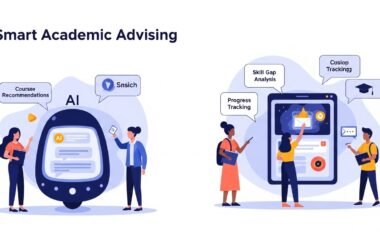When young children begin day care, their world expands beyond their family. While parents remain their core anchor, it is often the childcare educator they spend time with each day who starts to influence how they handle conflict, build trust, and explore their surroundings. The role of a childcare educator is often to set the tone for a child’s first real experience with structure, guidance, and belonging.
How do early educators support brain development?
Most of what a child learns happens well before they reach a classroom. Movement, speech, emotion, attention, it’s all taking root in those first few years. How an educator responds to a tantrum or offers reassurance after a rough drop-off becomes part of the template children use to make sense of the world.
Children pick up on tone, pace, and body language long before they fully understand rules. That’s why your calm voice when a toy gets snatched or your steady hand helping them try again carries weight. Over time, this predictable response teaches them that challenges can be managed, not feared, which is a cornerstone of emotional stability later in life.
What does confidence-building look like in early childhood?
You won’t always see it straight away. Confidence builds in layers. A toddler learns it’s safe to ask for help. A four-year-old starts narrating what they’re doing. A child who never touched paint finally makes a mess with both hands.
None of that happens by accident. It comes from adults modelling self-regulation, noticing effort, and staying present when things wobble. A good childcare educator doesn’t rush to fix things but makes space for the trying. That’s how resilience forms in tiny, half-muttered “I did it” moments that pile up over time.
Of course, some days feel messy. One child is clingy. Another throws a shoe. What matters is the way you respond. Centres are increasingly looking for educators who understand that behaviour isn’t random; it’s communication. Skilled educators read these signals, whether it’s a child covering their ears in a noisy room or withdrawing during group play, and adjust the environment so the child feels supported rather than disciplined for simply expressing a need.
How do children’s needs change with age?
The needs shift quickly, and you have to shift with them:
- Infantsneed consistency, a gentle voice, and one-to-one attention.
- Toddlerstest boundaries and look for fairness.
- Preschoolerswant independence but still lean on safety.
An experienced childcare educator can read a room and adjust the pace. You might hold space for one child’s meltdown while encouraging another to take the lead during tidying-up. Many centres group children by developmental stage, but the nuance is in how you move through the day with them.
When these kids start school, they carry emotional habits: how to ask for help, how to bounce back from mistakes, and how to hold their own without shutting down. The influence of a childcare educator extends well beyond the early years. The habits, coping strategies, and social skills children practise daily often shape how they approach learning, manage friendships, and solve problems well into their primary school years.
Why does consistency from educators matter?
Children watch everything. They know who greets them first. They sense when you’re distracted and they can tell the difference between forced patience and genuine presence. Routine is important, but only when it’s anchored by someone who’s tuned in.
That’s what makes a consistent childcare educator irreplaceable. Not because they maintain a stable roster, but because they become a reference point. Kids can manage change, but only when there’s something stable to return to. Knowing they have a trusted adult who responds predictably gives them the confidence to explore, try, and recover from setbacks.
What should you look for in your next childcare role?
Maybe you’ve been in the sector a while and want a new challenge. Maybe you’re returning after a break and wondering what’s changed. Either way, you’ve probably learned that not every centre is the same. Some offer tight mentoring and daily support. Others expect you to lead the room and trust your judgement.
Supportive environments do exist, places that match your strengths and provide you with room to grow as a childcare educator. They prioritise communication, professional development, and a team culture where everyone works together to meet children’s needs. Speaking with a recruiter who understands early education can help you find a role that fits how you work best.
Understanding the Role of a Childcare Educator in shaping children’s futures can help you assess whether a potential position aligns with your values, skills, and professional goals. The right role allows you to make a lasting impact on young lives while also supporting your own career growth.
Final thoughts
Early childhood is a formative stage, and the adults in the room hold immense influence over how children learn, feel, and connect. A skilled childcare educator balances structure with empathy, guidance with patience, and teaching moments with space for independence. By tuning into each child’s cues, adapting to shifting needs, and modelling consistency, educators lay the groundwork for lifelong learning and emotional health.
Whether you are new to the profession or seeking your next opportunity, recognising your impact and finding the environment where you can thrive ensures that both you and the children in your care can flourish. With the right approach, you can shape the earliest and most important chapters of a child’s story.








